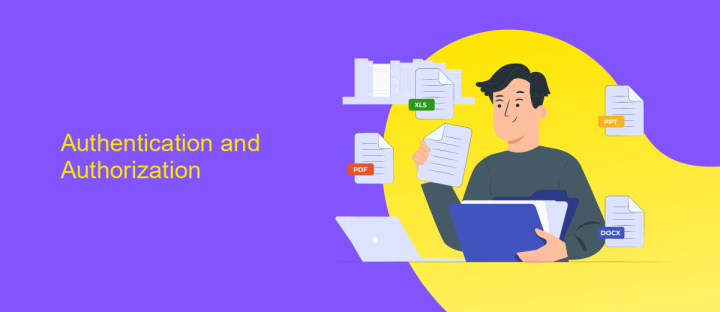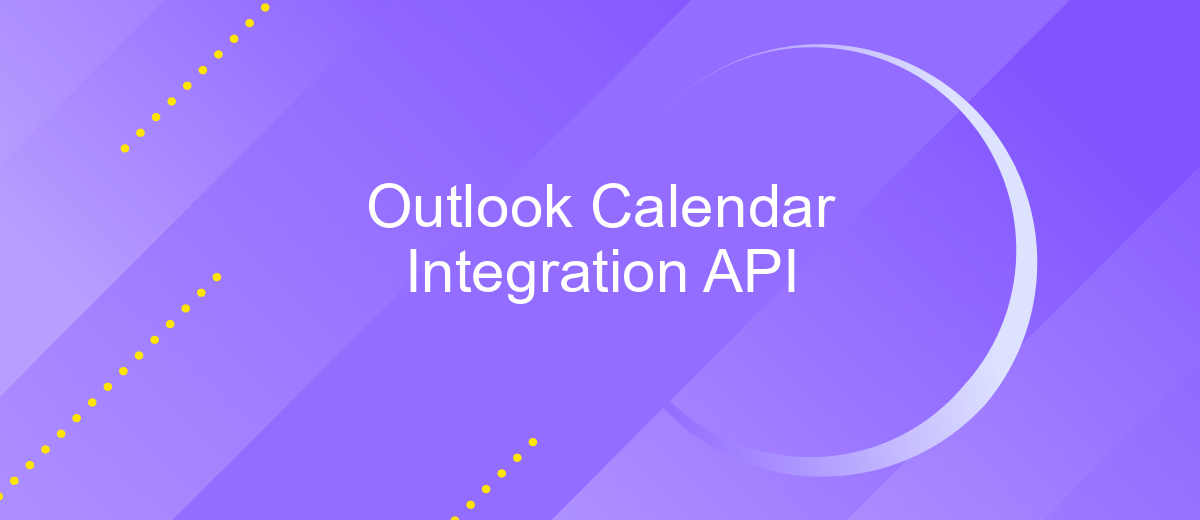Outlook Calendar Integration API
The Outlook Calendar Integration API offers developers a robust set of tools to seamlessly integrate Outlook calendar functionalities into their applications. By leveraging this API, developers can enable users to access and manage their calendars, schedule events, and receive notifications directly from their apps. This integration not only enhances user experience but also streamlines workflow efficiency, making it an essential tool for modern application development.
Introduction to Outlook Calendar Integration API
The Outlook Calendar Integration API is a powerful tool designed to streamline and enhance your scheduling capabilities. By integrating with Outlook Calendar, developers can create seamless experiences for users, allowing them to manage events, appointments, and reminders directly from their applications. This API opens up a world of possibilities, from automating calendar entries to synchronizing data across multiple platforms.
- Access and manage calendar events programmatically.
- Automate scheduling tasks and reminders.
- Synchronize calendar data across various devices and applications.
- Enhance user experience with real-time calendar updates.
Whether you're building a personal productivity app or a corporate scheduling tool, the Outlook Calendar Integration API offers robust features to meet your needs. Its comprehensive documentation and support make it accessible for developers of all levels. By leveraging this API, you can ensure that your application not only meets the demands of modern users but also provides a seamless and efficient scheduling experience.
Authentication and Authorization

When integrating with the Outlook Calendar API, ensuring secure authentication and authorization is paramount. The API employs OAuth 2.0, a robust protocol that enables applications to access user data without exposing their credentials. Developers must first register their application with the Microsoft Azure portal to obtain client credentials, including a client ID and client secret. These credentials are essential for initiating the OAuth flow, where users consent to grant the application specific permissions. Once authorized, the application receives an access token, which must be included in the header of each API request to authenticate and authorize the actions.
For seamless integration and management of authentication processes, services like ApiX-Drive can be invaluable. ApiX-Drive simplifies the setup by providing a user-friendly interface to manage OAuth credentials and automate token refresh processes. This ensures that your application maintains uninterrupted access to the Outlook Calendar API, enhancing both security and efficiency. By leveraging such tools, developers can focus on building robust features without the overhead of managing complex authentication workflows. Always ensure to follow best practices and regularly review permissions to safeguard user data.
Key Features and Functionality

The Outlook Calendar Integration API offers a seamless way to incorporate calendar functionalities into your applications, enhancing productivity and user experience. This API provides robust features that allow developers to create, modify, and manage calendar events efficiently. It ensures smooth synchronization with Outlook calendars, enabling users to keep track of their schedules effortlessly.
1. **Event Management**: Easily create, update, and delete calendar events, ensuring real-time synchronization with Outlook.
2. **Calendar Sharing**: Facilitate collaborative scheduling by enabling users to share their calendars with others.
3. **Notifications and Reminders**: Set up notifications and reminders to keep users informed about upcoming events and changes.
4. **Time Zone Support**: Automatically adjust event times according to different time zones, ensuring global accessibility.
5. **Rich Data Access**: Access detailed event information, including attendees, locations, and meeting notes, for comprehensive event management.
By leveraging these features, developers can build applications that provide a cohesive and integrated experience for managing calendars. The API's flexibility and powerful functionality make it an essential tool for enhancing productivity and ensuring that users have complete control over their schedules. With its user-friendly interface and comprehensive documentation, integrating the Outlook Calendar API is straightforward and efficient.
Practical Use Cases and Examples

Integrating the Outlook Calendar API into your applications can significantly enhance productivity by automating scheduling tasks and improving user experience. Whether you're developing a personal assistant app or a corporate tool, leveraging this API allows for seamless calendar management and synchronization.
Businesses can utilize the Outlook Calendar API to streamline operations, ensuring that meetings and events are efficiently organized. By automating calendar updates, organizations can reduce manual errors and save valuable time. This integration also facilitates improved communication and collaboration among team members, as everyone stays informed of schedule changes in real-time.
- Automated meeting scheduling for virtual assistants.
- Real-time event updates and notifications for mobile apps.
- Synchronization of shared calendars in team collaboration tools.
- Integration with CRM systems for client appointment management.
Incorporating the Outlook Calendar API into diverse applications not only enhances functionality but also aligns with modern digital workflows. By providing users with reliable and up-to-date scheduling information, developers can create more efficient and user-friendly applications, ultimately boosting productivity and user satisfaction.
Best Practices and Troubleshooting
When integrating the Outlook Calendar API, ensure that your application requests only the permissions necessary for its functionality. This minimizes security risks and simplifies the user consent process. Regularly update your application to maintain compatibility with the latest API changes. For seamless integration, consider using services like ApiX-Drive, which streamline the connection between Outlook Calendar and other applications, reducing the need for manual coding and saving development time.
If you encounter issues, verify your API keys and tokens are correctly configured and not expired. Check for any recent changes in the Outlook Calendar API documentation, as updates may affect your integration. Utilize logging to capture errors and identify patterns, allowing for quicker troubleshooting. If problems persist, consult community forums or seek support from services like ApiX-Drive, which can provide valuable insights and solutions based on their extensive integration experience. Regular testing and monitoring will ensure your integration remains robust and reliable.
FAQ
How can I integrate Outlook Calendar with my application using the API?
What permissions are required to access Outlook Calendar data?
Can I automate calendar event creation using the API?
How can I handle recurring events with the Outlook Calendar API?
Is there a way to simplify the integration process without extensive coding?
Do you want to achieve your goals in business, career and life faster and better? Do it with ApiX-Drive – a tool that will remove a significant part of the routine from workflows and free up additional time to achieve your goals. Test the capabilities of Apix-Drive for free – see for yourself the effectiveness of the tool.

